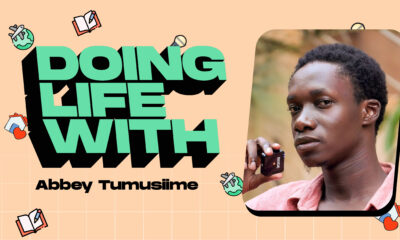Features
Laetitia Mugerwa: On Balancing Human Rights and International Relations

The recent fallout between Uganda and the West specifically supra-nationals around LGBTQI rights is too critical for any serious writer to ignore. Not just for another reactive article but for the most part a call to protest the grounds upon which diplomatic relations on this issue are shaped. Facts straight, the case of Uganda is not unique as there are over 67 countries of the world where people who identify as gay or with different sexual orientations are persecuted, criminalised, imprisoned and murdered.
Unpacking this fallout requires noting that Uganda recently amended its Homosexuality Act which calls for death punishments, and years of imprisonment to not only people who identify as LGBTQI but also people who are viewed to “promote” or ally with the community. In response to this law, the World Bank took the step of suspending all allocated funds to Uganda, using this action as a form of protest against the law due to its contradiction with the Bank’s core values.
“Two wrongs don’t make a right,” a familiar adage that prompts us to examine the facts at hand. To begin, it’s crucial to note that the Ugandan Law concerning LGBTQI rights stands as an exemplification of cruelty. Its existence poses a challenge due to its unsettling nature, as it not only criminalises individuals based on their self-identified identities but also incarcerates those who support and stand by them. This law transcends the bounds of humanity and sound reasoning, representing a grievous departure from fundamental principles.
This law isn’t merely contentious; it is constructed upon a foundation of stereotypes that unjustly malign LGBTQI people as hateful and an imminent threat to the fabric of human existence. Every law-abiding citizen should certainly be concerned about a weaponised legal system against identity.
However, it is equally important to acknowledge and respect that certain countries or communities have implemented bans on homosexuality or limited LGBTQI individuals from accessing certain privileges. This is not exclusive to Uganda; indeed, a similar situation exists in the United States, where LGBTQI couples are prohibited from marrying in 13 states. It is evident that the perception of homosexuality as a “sin” and “unnatural” is shared by some in Uganda, just as it is held by a portion of the American population.
Lessons from the past should teach us that what is written in the blood can never be erased in ink. Unpacking this ‘fallout’ at a diplomatic stage is, without doubt, problematic if and when the stage is laid out entirely on moral ground. The danger of the moral high ground to modern state functions and relations with supranational organisations, or even to other states by way of morality, demands urgent revision.
When institutions such as the World Bank elevate their stance and assume a moral high ground based on “values,” questions from critics and observers naturally arise: Why are reactive measures predominantly targeted at countries like Uganda concerning LGBTQI rights, yet almost blind to most recent abuses of human rights and other forms of impunity orchestrated by the same government on political dissent, torture of rights activists, journalists, and mass killing of citizens? Do the rights of LGBTQI matter more than the lives of others? Certainly not. LGBTQI community would agree to that too. Thus, it raises an inquiry into the essence and intent of the West’s response to how nations worldwide uphold human rights.
A more in-depth investigation into the World Bank directive to suspend financing to Uganda may mirror the just war doctrine of collective self-defence and the responsibility to protect using monetary restrictive and economic sanctions as weapons of warfare. In this direction, one may argue that the World Bank is asserting coercive “militarily-engineered action” to “call to order” states that are viewed as diversionary to “ shared values”. The adoption of such drastic measures as outlined in military textbooks not only runs counter to the fundamental mission of the bank but should ideally be minimized or, if deemed necessary, considered only as an option of last resort. In situations like that of Uganda, it is more judicious for supranational entities such as the World Bank to opt for diplomatic reproach through means such as scaling back political affiliations, engaging in international criticism, facilitating dialogue, or offering mediation. These pragmatic responses align more coherently with the authentic pursuit of the bank’s core mandate, rather than assuming the role of a moralistic supervisor of nations.
Suffix to note that it is common sense morality that the World Bank acting as an economic moralist institution that takes a high moral ground on countries such as Uganda in tackling egregious LGBTQI rights violations is certainly a threat to the global economy, and likely to advance ‘unintended’ socioeconomic strain, and repercussions to all Ugandans including the LGBTQI community.























